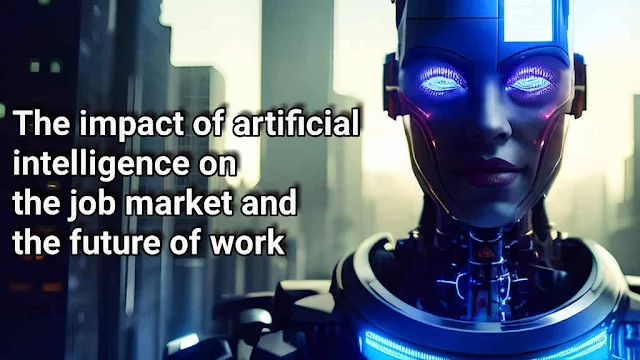The Rise of the Machines: How Artificial Intelligence is Changing the Job Market and the Future of Work"
Artificial intelligence (AI) is rapidly transforming the way we live and work. It has the potential to improve efficiency, reduce costs, and drive innovation in a wide range of industries. However, there are also concerns about the impact of AI on the job market and the future of work. In this article, we will explore the ways in which AI is affecting the job market and what we can expect in the future.
One of the most significant impacts of AI on the job market is the automation of certain tasks. As machines and algorithms become more sophisticated, they are able to take over tasks that were previously performed by humans. This is particularly true in industries such as manufacturing, transportation, and customer service. For example, self-driving cars and drones are already being used to transport goods, and chatbots are being used to handle customer service inquiries. As a result, jobs that involve repetitive or routine tasks are at the highest risk of being automated.
While the automation of certain tasks is likely to lead to job losses in the short-term, it also has the potential to create new jobs in the long-term. For example, as machines take over routine tasks, workers may be freed up to focus on more complex and creative tasks that require human skills such as problem-solving, critical thinking, and communication. Additionally, the development and deployment of AI systems will also create new jobs in areas such as data analysis, software development, and AI research.
Another impact of AI on the job market is the changing nature of work itself. As machines become more capable, the tasks that are performed by humans are also likely to change. For example, jobs that currently involve manual labor may become more focused on supervising and monitoring the work of machines. Additionally, as AI systems become more integrated into the workplace, workers may need to develop new skills and knowledge in order to work effectively alongside them.
It's also worth noting that AI is not only affecting low-skilled jobs but also the middle and high-skilled jobs. As AI and machine learning (ML) technologies continue to advance, the demand for skilled workers in these areas will continue to grow. Professionals with data science, machine learning, and AI skills are in particularly high demand, as more and more companies are leveraging these technologies to drive innovation and improve their bottom line.
In conclusion, the impact of AI on the job market and the future of work is complex and multifaceted. While automation is likely to lead to job losses in the short-term, it also has the potential The impact of artificial intelligence on the job market and the future of work create new jobs in the long-term. Additionally, the changing nature of work itself means that workers will need to adapt and develop new skills in order to stay relevant in the future. It's important to understand that AI is not only a threat but also an opportunity, and the key is to prepare for the future of work by investing in education and training that will help workers develop the skills they need to thrive in the AI-driven world.

